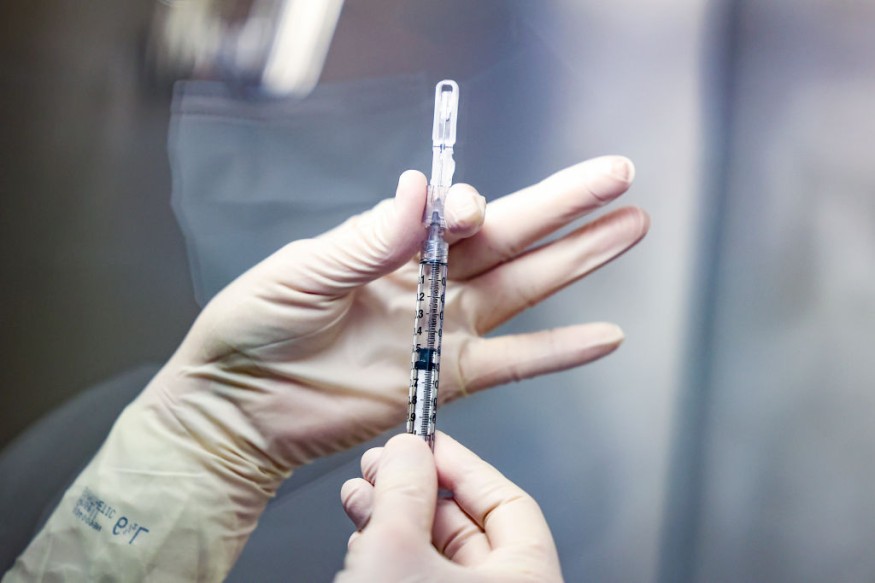The nation will soon have a revolutionary method when the U.S. coronavirus vaccine implementation accelerates: a single-dose vaccine that can live in an ordinary refrigerator for up to three months.
Manufacturer Johnson & Johnson reported good safety against COVID-19 was offered by its single-dose version. However, the news came with two caveats: the effectiveness rate of the nominee, 72 percent in the United States, is smaller than the 95 percent ratings of the two-dose variants of Pfizer-BioNTech and Moderna currently approved for use in the United States.

In South Africa, where a series of mutations threatens to accelerate the global pandemic's deadline, the Johnson & Johnson vaccine has given less immunity among trial participants. The effectiveness rate was just 57 percent in that report. Pfizer-BioNTech and Moderna's producers have identified similar doubts regarding their vaccines, and various dosing and formulation methods are being tested if new coronavirus strains outwit their vaccines.
Here's what's learned about how it operates and how the combination of vaccinations can blend into it.
How Effective Is This?
In a global Phase 3 trial, the firm revealed that Johnson & Johnson's Covid-19 single-shot vaccine was 66 percent successful in avoiding mild and severe illness.
In all areas where experts studied it, the vaccine is 85 percent effective overall in avoiding hospitalization and mortality.
Its effectiveness differed from one nation to another against mild and serious diseases: 72% in the United States, 66% in Latin America, and 57% in South Africa. Starting one month after the shot, this was calculated.
A leading COVID-19 vaccine scientist who helped create the extremely efficient Moderna vaccine says the latest study findings from Johnson & Johnson, which allude to 72 percent effectiveness for the one-shot vaccine in the U.S., look "darn good," Business Insider reported.
1/n: People are asking me for comments, and I'll tell you how my ex project manager used to tell me re: me overachieving & striving for "perfection" in some things...
— KizzyPhD (@KizzyPhD) January 29, 2021
"Don't let the perfect get in the way of the good enough."
This is darn good for 1-dose ... "in a pandemic".
How Does It Work?
The J&J vaccine is considered a non-replicating viral vector vaccine using a popular cold virus called adenovirus 26.
By taking a tiny volume of genetic material that codes for a piece of COVID-19 and combining it with a weakened variant of adenovirus 26, scientists produced this shot. J&J scientists modified this adenovirus to reach cells, but it can not reproduce and render people ill.
AstraZeneca uses related platforms, but the adenovirus comes from a chimpanzee.
The adenovirus takes the genetic material into human cells from the coronavirus, tricking them into creating the coronavirus spike protein pieces-the component it uses to bind to cells. Against these portions of the coronavirus, the immune system then responds.
"So you're not being infected with the virus that can give you Covid-19 when you get this vaccine. It just has some of the harmless Covid virus proteins on its surface," explained Dr. William Schaffner, an internist and infectious disease expert with the Department of Health Policy of Vanderbilt University, told CNN. "So essentially it's a sheep in wolf's clothing, and when your immune system sees it, it responds to it and creates protection against it and, in the future, against the real virus that causes COVID-19."
How Does the Rollout Affect a Single-Dose Shot?
It would be much cheaper to prescribe a single dose, ensuring that more persons might be vaccinated since fewer would have to be put aside to give anyone a second shot.
Schaffner, who claims that introducing a vaccine like this would "This advantage goes up in neon," vaccination campaigns in the U.S. and across the globe, said, "really accelerate."
On CNN's Coronavirus Reality vs. Fiction podcast, Dr. Dan Barouch of Harvard Medical School, who helped create Johnson & Johnson's vaccine nominee, said a billion doses of vaccine would convert into a billion people vaccinated with a single dose vaccine.
According to Dr. Paul Offit, who is a part of the FDA's VRBPAC, the Johnson & Johnson vaccine procedure should be roughly the same as for the Moderna and Pfizer vaccines.
It took a bit longer than three weeks for the Pfizer vaccine to be sent by the corporation to the EUA. It took significantly longer than two weeks for the Moderna vaccine.
Check out more news and information on COVID-19 on Science Times.
© 2026 ScienceTimes.com All rights reserved. Do not reproduce without permission. The window to the world of Science Times.











